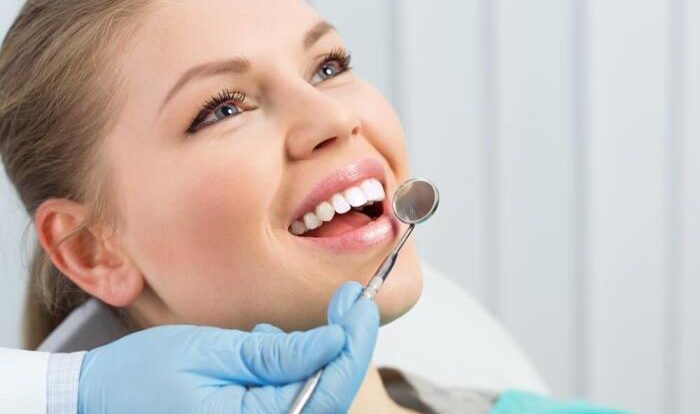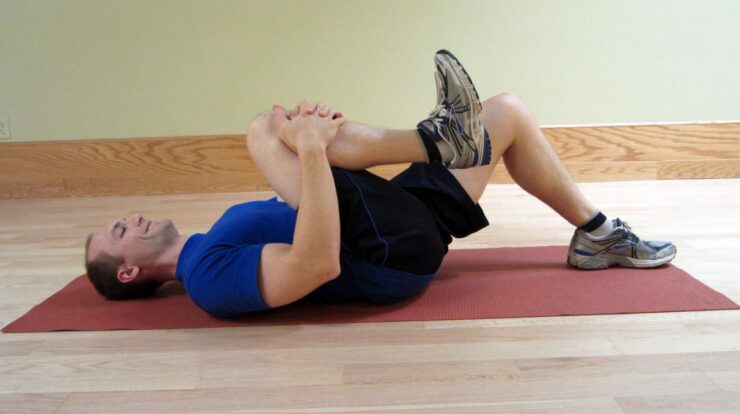
How to cure gum disease without a dentist – Suffering from gum disease? Don’t despair! You can take matters into your own hands and cure gum disease without a dentist. This comprehensive guide will reveal effective home remedies, over-the-counter treatments, lifestyle modifications, and prevention strategies to help you restore your gum health.
From natural remedies like saltwater rinses and tea tree oil to lifestyle changes like quitting smoking and reducing stress, we’ve got you covered. Discover the secrets to a healthy smile, all without the need for expensive dental procedures.
Home Remedies

Home remedies can offer a natural and cost-effective way to alleviate gum disease symptoms. While they are not a substitute for professional dental care, they can complement treatment and provide additional support for gum health.
Here are some effective natural remedies for gum disease:
Salt Water Rinse
Saltwater has antiseptic and antibacterial properties that can help reduce inflammation and kill bacteria in the mouth. To make a saltwater rinse, dissolve 1/2 teaspoon of salt in 8 ounces of warm water. Rinse your mouth for 30 seconds, swishing the solution around to reach all areas of your gums.
Turmeric Paste, How to cure gum disease without a dentist
Turmeric contains curcumin, a compound with anti-inflammatory and antimicrobial effects. To make a turmeric paste, mix 1 teaspoon of turmeric powder with a little water to form a paste. Apply the paste to your gums and leave it on for 10-15 minutes before rinsing.
Tea Tree Oil
Tea tree oil has antifungal and antibacterial properties that can help fight gum disease. Add 2-3 drops of tea tree oil to a cup of water and rinse your mouth for 30 seconds. Do not swallow the solution.
Aloe Vera Gel
Aloe vera gel has anti-inflammatory and healing properties that can soothe and repair inflamed gums. Apply aloe vera gel directly to your gums and leave it on for 10-15 minutes before rinsing.
Gum disease is a common problem that can lead to serious health issues if left untreated. While it’s always best to see a dentist for professional treatment, there are some things you can do at home to help cure gum disease without a dentist.
For more information on how to cure gum disease without a dentist, click here .
Benefits and Limitations
Home remedies can provide temporary relief from gum disease symptoms and support gum health. However, it’s important to note that they are not a substitute for professional dental care. If you have severe gum disease, it’s crucial to consult a dentist for proper diagnosis and treatment.
Additionally, some home remedies may cause side effects or interact with certain medications. Always consult with a healthcare professional before using any home remedies for gum disease.
Over-the-Counter Treatments

Over-the-counter medications can provide temporary relief from gum disease symptoms, but they do not cure the underlying cause. These medications typically contain antiseptics, antibiotics, or pain relievers.
Antiseptic mouthwashes, such as Listerine or Crest Pro-Health, can help reduce bacteria in the mouth and freshen breath. However, they are not effective at treating gum disease.
Antibiotic mouthwashes, such as PerioGard, can be effective at killing bacteria that cause gum disease. However, they can also have side effects, such as tooth staining and oral thrush.
Gum disease can be a serious problem, but there are things you can do to help prevent and treat it without having to see a dentist. There are a number of natural remedies that can help to reduce inflammation and pain, and some simple lifestyle changes can also make a big difference.
If you’re looking for ways to cure gum disease without a dentist, this article has some great tips to get you started.
Pain relievers, such as ibuprofen or acetaminophen, can help reduce pain and inflammation associated with gum disease. However, they do not treat the underlying cause of the disease.
Comparison of Over-the-Counter Treatments
The effectiveness of over-the-counter treatments for gum disease varies depending on the severity of the disease and the individual patient. Antiseptic mouthwashes are generally not effective at treating gum disease, while antibiotic mouthwashes can be effective but have potential side effects.
Gum disease can be a pain, but it doesn’t have to be. There are plenty of ways to cure gum disease without a dentist. For more information, check out how to cure gum disease without a dentist . There are many natural remedies that can help, like gargling with salt water or using tea tree oil.
You can also try some over-the-counter treatments, like mouthwashes and gels. If you’re looking for a more permanent solution, you can try getting a dental cleaning or scaling.
Pain relievers can help reduce pain and inflammation, but they do not treat the underlying cause of the disease.
Lifestyle Modifications

Maintaining a healthy lifestyle can significantly contribute to preventing or managing gum disease. This involves making positive changes in diet, oral hygiene habits, and stress management.
A well-balanced diet rich in fruits, vegetables, and whole grains provides essential nutrients for healthy gums. Additionally, limiting sugary and processed foods helps reduce the risk of gum inflammation.
Oral Hygiene
Regular and thorough oral hygiene practices are crucial for gum health. Brushing your teeth twice a day with a soft-bristled toothbrush and fluoride toothpaste helps remove plaque and bacteria. Flossing daily removes plaque and food particles from between teeth, where a toothbrush cannot reach.
Stress Management
Chronic stress can weaken the immune system, making individuals more susceptible to gum disease. Engaging in stress-reducing activities such as exercise, meditation, or spending time in nature can help manage stress levels and improve overall health, including gum health.
Dental Procedures
Dental procedures are a crucial part of treating gum disease, offering more advanced solutions compared to home remedies and lifestyle modifications. These procedures vary in complexity, benefits, risks, and recovery time.
The effectiveness of different dental treatments depends on the severity of the gum disease and the individual’s overall health. Consulting with a dental professional is essential to determine the most appropriate treatment plan.
Scaling and Root Planing
- Non-surgical procedure involving the removal of plaque and tartar from the teeth and root surfaces.
- Typically performed under local anesthesia.
- Benefits: Removes bacteria and inflammation, preventing further damage to the gums and bone.
- Risks: Minor discomfort or sensitivity during the procedure.
- Recovery time: Minimal, with some soreness or sensitivity for a few days.
Flap Surgery
- Surgical procedure that involves lifting the gum tissue to access and clean the root surfaces.
- Performed under local or general anesthesia.
- Benefits: Allows for thorough cleaning of deep pockets, reducing inflammation and promoting gum reattachment.
- Risks: More invasive than scaling and root planing, with potential for bleeding, pain, and swelling.
- Recovery time: Several days to weeks, with restricted diet and activity.
Bone Grafting
- Surgical procedure that involves placing bone material into areas where the bone has been lost due to gum disease.
- Performed under local or general anesthesia.
- Benefits: Restores bone structure, providing support for the teeth and preventing further bone loss.
- Risks: More complex and invasive than other procedures, with potential for bleeding, infection, and pain.
- Recovery time: Several weeks to months, with restricted diet and activity.
Prevention Strategies: How To Cure Gum Disease Without A Dentist
Gum disease is a common problem that can lead to serious health issues if left untreated. Fortunately, there are a number of things you can do to prevent gum disease and keep your smile healthy.One of the most important things you can do is to identify and mitigate your risk factors for gum disease.
These include:
- Poor oral hygiene
- Smoking
- Diabetes
- Certain medications
- Family history of gum disease
If you have any of these risk factors, it is important to take extra care of your teeth and gums. This means brushing and flossing regularly, eating a healthy diet, and avoiding smoking. You should also see your dentist regularly for checkups and cleanings.In
Looking for a way to cure gum disease without a dentist? There are actually a few different ways you can do it. One option is to use an over-the-counter mouthwash that contains chlorhexidine. Another option is to try oil pulling, which involves swishing a tablespoon of coconut oil around in your mouth for 15-20 minutes.
You can also try using a homemade mouthwash made with baking soda and hydrogen peroxide. For more information on how to cure gum disease without a dentist, check out this article .
addition to mitigating your risk factors, there are a number of things you can do to promote good oral hygiene and prevent gum disease. These include:
- Brush your teeth twice a day with a soft-bristled toothbrush and fluoride toothpaste.
- Floss your teeth once a day to remove plaque and bacteria from between your teeth.
- Eat a healthy diet that is low in sugar and processed foods.
- Avoid smoking, as it can damage your gums and increase your risk of gum disease.
Finally, it is important to see your dentist regularly for checkups and cleanings. Your dentist can help you identify and treat any signs of gum disease early on, before it becomes a serious problem.By following these prevention strategies, you can help keep your smile healthy and free of gum disease.
Last Recap

Taking control of your gum health doesn’t have to be daunting. By embracing the tips and techniques Artikeld in this guide, you can effectively cure gum disease without a dentist and maintain a radiant smile for years to come.
FAQ Compilation
Can I cure gum disease completely without a dentist?
While it’s possible to improve gum health through home remedies and lifestyle changes, severe cases may require professional dental treatment.
How long does it take to cure gum disease with home remedies?
The effectiveness and duration of home remedies vary depending on the severity of the gum disease and individual response.
Is gum disease reversible?
Early stages of gum disease can be reversed with proper treatment and lifestyle modifications, but advanced stages may require ongoing management.





